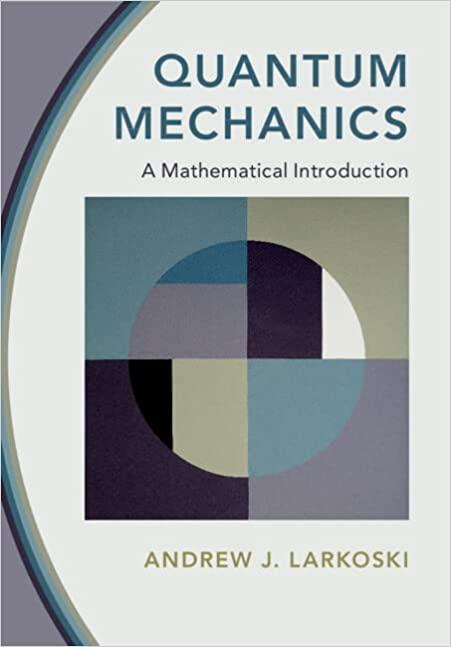Consider two Hermitian operators (hat{A}) and (hat{B}) and consider the unitary operators formed from exponentiating them: [begin{equation*}hat{U}_{A}=e^{i
Question:
Consider two Hermitian operators \(\hat{A}\) and \(\hat{B}\) and consider the unitary operators formed from exponentiating them:
\[\begin{equation*}\hat{U}_{A}=e^{i \hat{A}}, \quad \hat{U}_{B}=e^{i \hat{B}} \text {. } \tag{4.155}\end{equation*}\]
If \(\hat{A}\) and \(\hat{B}\) were just numbers, then it would be easy to determine the unitary matrix formed from the product of \(\hat{U}_{A}\) and \(\hat{U}_{B}\). However, matrices do not in general commute, so it complicates this product. Using the Taylor expansion of the exponential, find the difference of unitary matrices
\[\begin{equation*}e^{i \hat{A}} e^{i \hat{B}}-e^{i(\hat{A}+\hat{B})} . \tag{4.156}\end{equation*}\]
Only consider terms in the Taylor expansion up through cubic order; that is, terms that contain at most the product of three matrices \(\hat{A}\) and/or \(\hat{B}\). Under what condition does this difference vanish?
Step by Step Answer:

Quantum Mechanics A Mathematical Introduction
ISBN: 9781009100502
1st Edition
Authors: Andrew J. Larkoski





